If you have made the decision to begin transitioning your lawn to a native plants habitat, but you’re not quite sure where to begin, then this information should be helpful. We will provide some guidance on how to get started. This article is the second part of a 2-part article. To view prior content, please visit: Transitioning Your Yard to Native Plants: Why?
Find a local supplier
One of the first steps in the process is to find a good local supplier that has expertise about native plants. They will be able to advise you along the way and provide expertise and options for how to best develop your native plant garden. Use someone local whenever possible – someone that can access plants that are specific to your region, from your region. Big box suppliers may have plants labeled as native, but may actually come from places far from your location. Often you might find native plant ‘cultivars’ – which are a modified version of a native plant and may not provide the same type of benefits. If you are not sure who your local experts are, a good resource is the New York Flora Association. Their board members likely know people throughout the state that can help you with true expertise.
Determine Parameters – Identify Conditions
Next in your process is to designate your space. You can start with one area and expand this over time. Select a practical location to begin and allow for room to expand over time. You will want to assess the existing conditions of this space. Is it sunny throughout the day or well shaded? What is the soil type? Look at drainage and other factors that might impact the types of plants that would be best suited for that location. When you have this information, consult your provider for recommendations on what plants might be best.
Plan Your Design
Consider the design for your garden. In addition to focusing on plants that provide a good variety and quantity of food resources (nuts, berries, seeds, nectar, etc.), you might also want to incorporate vertical structure – with plant species grouped together and providing different shapes, sizes and heights. You can design for seasonal colors and blooms, with some plants that bloom in spring and others that bloom in fall months. Other features can include natural concave rocks for catching rainwater, and some brush piles or branches to create additional shelter throughout the year.
Prepare Your Soil
To prepare your area for new plants, you may need to remove lawn or any invasive plants. Add compost to the soil for a nutrient rich environment. Once you have prepared the soil, you can cover with layers of newspaper and mulch until you are ready to plant.
Plant and Enjoy
Native plants need time to adapt to their new habitat, so it is recommended to plant on cooler days in Spring or Fall, or during a cooler summer week. They will need some basic watering and care while they start out for the first few weeks, but after that, maintenance is just checking for and removing any invasive weeds that appear. If you have additional questions, you can find information at Bird-Friendly Plants FAQ from National Audubon Society.
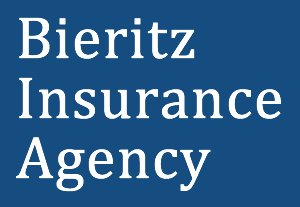
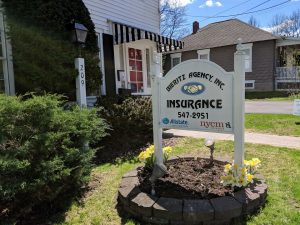


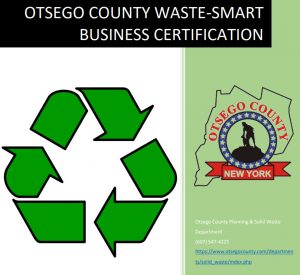 Last week, we celebrated the 51st anniversary of the first Earth Day. The first event in 1970 looked a lot different than it does today. It was the largest single-day protest in human history when more than 20 million people poured out onto the streets throughout the US. Shortly after that, in 1972 landmark conservation laws and regulations were passed that included the Clean Water Act, the Endangered Species Act, the Marine Protection, Research and Sanctuaries Act, the Marine Mammal Protection Act, to name a few. While there is a lot that has changed over the last 50 years, a good deal of our original challenges that remain today. For example, Recycling remains a challenge. In Otsego County, only about 12% of recyclable materials are recovered with close to 80% continuing to go to landfills.
Last week, we celebrated the 51st anniversary of the first Earth Day. The first event in 1970 looked a lot different than it does today. It was the largest single-day protest in human history when more than 20 million people poured out onto the streets throughout the US. Shortly after that, in 1972 landmark conservation laws and regulations were passed that included the Clean Water Act, the Endangered Species Act, the Marine Protection, Research and Sanctuaries Act, the Marine Mammal Protection Act, to name a few. While there is a lot that has changed over the last 50 years, a good deal of our original challenges that remain today. For example, Recycling remains a challenge. In Otsego County, only about 12% of recyclable materials are recovered with close to 80% continuing to go to landfills. While buying a new house is certainly one of the most exciting things anyone can do, the actual process of getting into that house is often full of stress and hard work. Even when the sale has finally closed, you still have an incredibly daunting task ahead of you: moving. Some people choose to do it themselves; others hire professional help. Either way, it’s important to consider your valuable possessions, and what might happen to them during the move. No matter how careful you are, there’s always the risk that something bad can happen to these irreplaceable keepsakes. This is why it’s important to consider moving insurance.
While buying a new house is certainly one of the most exciting things anyone can do, the actual process of getting into that house is often full of stress and hard work. Even when the sale has finally closed, you still have an incredibly daunting task ahead of you: moving. Some people choose to do it themselves; others hire professional help. Either way, it’s important to consider your valuable possessions, and what might happen to them during the move. No matter how careful you are, there’s always the risk that something bad can happen to these irreplaceable keepsakes. This is why it’s important to consider moving insurance.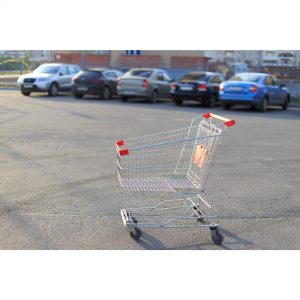 Parking lots contain a lot of potential safety hazards for both pedestrians and drivers. The National Safety Council (NHS) states that
Parking lots contain a lot of potential safety hazards for both pedestrians and drivers. The National Safety Council (NHS) states that 
 If you want to be energy efficient or stay warm on a budget, you are in luck. Keep reading to learn about ways to stay warm without increasing your energy bill or reinsulating your entire home.
If you want to be energy efficient or stay warm on a budget, you are in luck. Keep reading to learn about ways to stay warm without increasing your energy bill or reinsulating your entire home.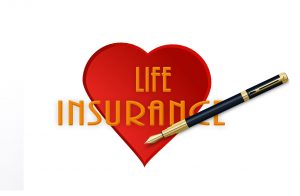 Life insurance is a necessity for most adults. Protecting and providing for your family is important should something happen to you. With how drastically our world has changed over the past few months, you may wonder if the life insurance industry has shifted as well.
Life insurance is a necessity for most adults. Protecting and providing for your family is important should something happen to you. With how drastically our world has changed over the past few months, you may wonder if the life insurance industry has shifted as well. Insurance is meant to protect your home, your car, your belongings and your family from financially devastating incidents. Few people *like* to pay for insurance. For many, home and auto insurance seems like large expenses for something they probably will never need, and for that reason, some will choose to insure for a bare minimum in order to save more and spend less. However, while being underinsured may seem thrifty, in the long run, the money you end up having to pay will likely exceed the amount you save. Here are some of the reasons why being underinsured is more expensive than receiving sufficient insurance.
Insurance is meant to protect your home, your car, your belongings and your family from financially devastating incidents. Few people *like* to pay for insurance. For many, home and auto insurance seems like large expenses for something they probably will never need, and for that reason, some will choose to insure for a bare minimum in order to save more and spend less. However, while being underinsured may seem thrifty, in the long run, the money you end up having to pay will likely exceed the amount you save. Here are some of the reasons why being underinsured is more expensive than receiving sufficient insurance.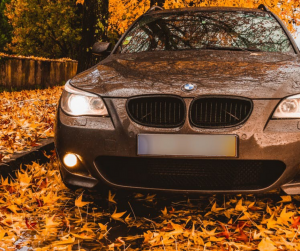
 Just like a fine wine, some of our greatest material possessions gain value over time. This is true of exceptional antique automobiles. Your antique automobile must be protected in all ways, from suitable shelter to ample insurance coverage.
Just like a fine wine, some of our greatest material possessions gain value over time. This is true of exceptional antique automobiles. Your antique automobile must be protected in all ways, from suitable shelter to ample insurance coverage. Here is an overview of some of the most frequently asked questions about motorcycle insurance.
Here is an overview of some of the most frequently asked questions about motorcycle insurance.
 Everyone wants assurance that he or she is fully protected on the road. Most drivers understand the need for comprehensive, reputable insurance when driving their own vehicles. When you must drive a rental vehicle or operate one that is not your own, having a clear understanding of insurance regulations and coverage in these situations is vital. Don’t be blindsided by finding yourself not as fully covered as you thought. Educate yourself on how insurance works for rentals and other non-owned vehicles, and find out why Bieritz Insurance Agency is a strong choice for all of your insurance needs.
Everyone wants assurance that he or she is fully protected on the road. Most drivers understand the need for comprehensive, reputable insurance when driving their own vehicles. When you must drive a rental vehicle or operate one that is not your own, having a clear understanding of insurance regulations and coverage in these situations is vital. Don’t be blindsided by finding yourself not as fully covered as you thought. Educate yourself on how insurance works for rentals and other non-owned vehicles, and find out why Bieritz Insurance Agency is a strong choice for all of your insurance needs.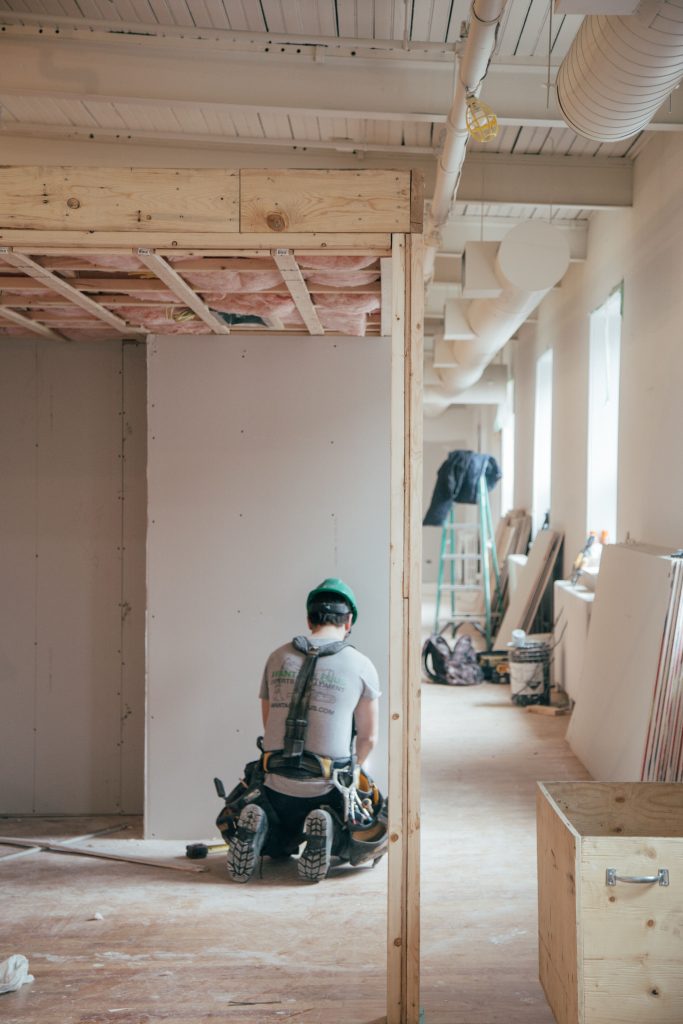 If you are a general contractor or own a construction company, having insurance is a necessary expense. Insurance helps to protect you if accidents or mistakes occur or if your or one of your employees gets hurt on the job. There are several different types of insurance that relate to businesses, so it can be difficult to know what needs to be included in your business insurance policy. Here is some general information to help provide an overview. We recommend that you
If you are a general contractor or own a construction company, having insurance is a necessary expense. Insurance helps to protect you if accidents or mistakes occur or if your or one of your employees gets hurt on the job. There are several different types of insurance that relate to businesses, so it can be difficult to know what needs to be included in your business insurance policy. Here is some general information to help provide an overview. We recommend that you 

